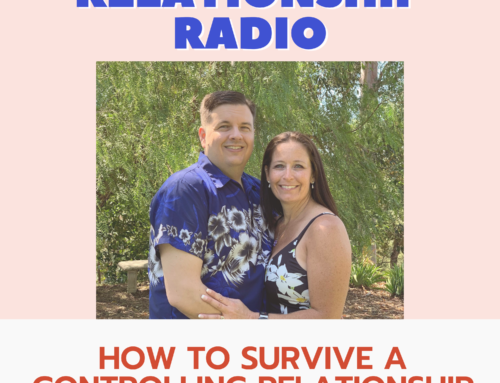Being controlled by anyone is terrible, but it’s especially painful when the person controlling you is the person who should be the most accepting of you; your wife. So what do you do if you’re married to a controlling wife? How can you break free of someone who controls your thoughts, decisions, passions, and hobbies?
Breaking Down The Areas Of Control
First, we should define what being controlled in a marriage means. Controlling, in this instance, is best described as an uneven and unhealthy balance of power in the relationship. At Marriage Helper, we have an acronym called PIES which stands for physical, intellectual, emotional, and spiritual. We use these areas to break down the ways control is often demonstrated in marriage.
What might it look like to have a physically controlling wife? Withholding sex can be a powerful way to control someone. This is often seen when the wife is trying to get her way, so she takes away intimacy from her husband as a punishment until he gives in.
While it’s more common to hear of a man being physically dominant over a woman, we can still see a reversal of the situation. Men might generally be bigger and stronger, but there have been many instances of a woman physically threatening violence. Let’s be clear; physical violence is never ok. While you might not fear for your life, you could still be in danger of being seriously injured. If the current situation you are in is unsafe, get to safety immediately.
And finally, a more nuanced form of physical control can come in the form of finances. For example, if your wife makes more money or controls the cash flow, she could use that power to withhold money in a way that wouldn’t allow you to function normally.
Other Areas Of Control
Intellectual control can be just as varied as physical control. For example, we’ve seen many instances where a controlling wife will argue with her husband until she gets what she wants. Many times the argument isn’t even resolved; the husband just agrees with her to end the argument. Using intellectual control almost always makes the husband feel worse about himself, his wife, and the relationship.
Emotional control is probably the one we see the most with our clients at Marriage Helper. Their wives don’t control them physically or yell at them, but they criticize, belittle, and cut down their husbands. Men often cite respect as one of the most essential qualities of the relationship, and controlling wives will use it to their advantage.
Finally, there is spiritual control. This area of control is second on the most seen list. Spiritual control is closely related to emotional control but utilizes religious texts and moral principles to enact it. Many Americans come from a Christian background, and their wives’ knowledge of the Bible gives them ammunition to control their husbands. They quote passages such as, Jesus said you shouldn’t divorce your wife except in situations of infidelity, if they talk about divorce. Or, according to the Bible, you as the husband should care for me as you care for your own body. Or perhaps the cruelest, Paul says your body belongs to me and that you shouldn’t withhold it from me sexually. In these situations, the wife is using religious text to prey on her husband’s piety to obtain what she wants.
Learn To Use The Word No
Now that we understand what having a controlling wife looks like, what can you do about it? We’ve talked about it earlier, but the first thing to do is ensure that you’re safe. No form of control is good for a marriage, but some can cross over into abuse. Nothing positive ever comes about when the situation is unsafe. If you are not safe, the first step in saving your marriage is to get to safety immediately.
Next, refuse to be controlled. Whether your controlling wife is threatening to withhold sex, spread rumors about you, or nag you to death, don’t give in. Living in a marriage defined by control rarely gets better until the control is dealt with. But what does refusing to be controlled even mean?
It starts with using the word no. No, I won’t skip playing basketball for the third week in a row because physical exercise is important to me. Or, no, I don’t agree with you, and I won’t give in just to let you have your way. An important piece to this is to respond in a strong, calm, and gentle way. Don’t just say no, but use language that shows that you understand your wife’s needs, but you won’t ignore your needs either. Then, try to come up with a solution together that will make both of you happy. As hard as it may be, refusing to be controlled is necessary in transforming from a controlling marriage to a healthy one.
Stand Firm
Undoubtedly, your wife will be angry that she’s no longer able to control you. How do you respond to that? First of all, stand firm. People don’t like change, especially when the change involves them feeling like they’re losing power. Your wife may have never heard you tell her no. Expect her attempts to control you to intensify, but you must stand firm when they do. It might put the relationship on shaky ground to begin with, but it’s essential for the dynamic to shift if the marriage is to survive and thrive in the long term.
Second, respond in a strong, calm, and gentle way. Martin Luther King, Jr. once said that darkness cannot drive out darkness; only light can do that. Similarly, disrespect from your controlling wife cannot drive out disrespect. I’m not encouraging you to pick a fight, but to pay close attention to how you say things. Finally, remain calm and refuse to get into arguments while always having a willingness to create a solution that benefits both of your needs.
We Can Help
And as always, Marriage Helper is here to assist in any way we can. If you need more information on control in a marriage, you can download our FREE eBook here.
If you want to learn how to establish boundaries in your marriage, you can check out our Boundaries Toolkit here. The Definitive Guide to Boundaries Toolkit is right for you if you need help working out how to deal with behaviors from your spouse. It will help you think through the idea of setting a boundary for things you feel can’t happen in your relationship, as well as things that must happen in your relationship.
As always, if you’re unsure of what your next steps should be for your situation, you can speak with one of our Client Representatives here.





